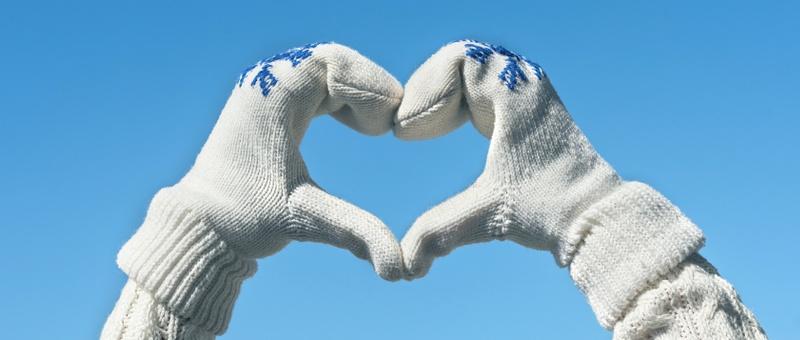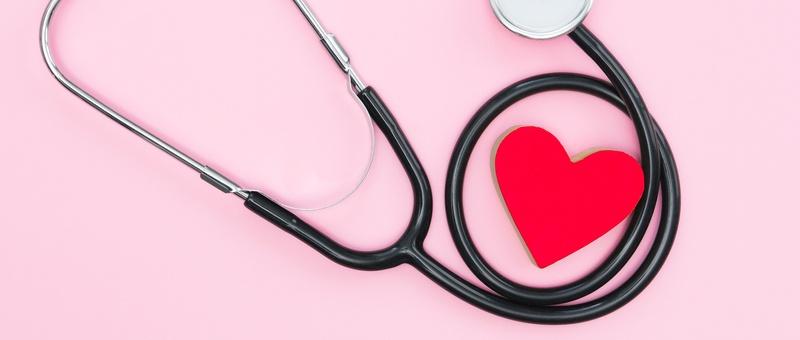
How to protect your heart during the winter
Peer reviewed by Dr Colin Tidy, MRCGPLast updated by Victoria RawLast updated 16 Oct 2025
Meets Patient’s editorial guidelines
- DownloadDownload
- Share
- Language
- Discussion
The cold, dark winter months can negatively affect our wellbeing, though our focus often remains on the dangers of flu and hypothermia. However, the drop in temperature can impact your health - specifically your heart - in ways you might not expect.
In this article:
Video picks for Heart health
Why can winter affect your heart?
According to the British Heart Foundation (BHF) your chance of having a heart attack or stroke increases during the winter months.
You are more likely to develop these health conditions if:
You're over 65 years.
You're overweight or obese.
You live an unhealthy lifestyle.
You have long-term health conditions.
If you've previously had a heart attack, you're also more susceptible if you contract flu - the likelihood of which increases in winter.
Dr Helen Flaherty, registered nutritionist and former Head of Health Promotion and Education, Heart Research UK says: "As well as higher rates of flu in the colder months, there are other factors that contribute to the rise in winter heart attacks.
"As temperatures drop, your blood vessels contract and your heart needs to work harder to keep you warm, leading to increased heart rate and blood pressure. Cold temperatures can cause changes in the formation of blood, making your chance of blood clots more likely, which can trigger a heart attack or stroke."
She adds that the winter months can also induce lifestyle changes, such as a decrease in physical activity, a less healthy diet, increased alcohol intake and smoking - particularly around the festive period. Increased emotional stress during this time is also believed to impact the rise in heart attack rates.
What can you do to keep your heart healthy in winter?
Back to contentsHeat your home appropriately
You can reduce the effect of cold weather by keeping your home heated to 18°C or higher, and by wrapping up well when you head outdoors.
"When it's very cold, snowy or icy, it may be better to stay indoors as much as you can," says Flaherty.
Ruth Goss, Senior Cardiac Nurse, The British Heart Foundation adds: "When you're indoors, wear warm socks and slippers to keep your feet cosy. You could also wrap up in a blanket, use a hot water bottle, or an electric blanket."
Wrap up when outside
It's important to wrap up in warm layers of clothing when going outside in the cold.
Goss says: "Wearing a few thin layers can keep you warmer than one thick layer. Putting on a hat, scarf and gloves will help to maintain your core heat.
"If you have angina, you could wear a scarf wrapped loosely around your mouth and nose, or wear a face mask, so you breathe in warmer air. This may help to improve any symptoms you might get in colder weather. However, if they persist or worsen, contact your doctor or call 999."
Stay active
Exercising can help prevent weight gain, which can put strain on your body, heart and immune system, and may make it less effective at fighting infections. It also increases your odds of complications if you catch the flu or COVID-19.
Flaherty says: "Feeling motivated to stay active during the cold, dark winter months can be challenging, particularly if you tend to exercise outdoors. You might want to look at indoor activities, such as badminton, dancing, yoga, gym classes, or online exercise classes at home."
Regular exercise - whether that's indoors or outdoors - is important for keeping your heart healthy.
Goss explains: "This can help to reduce high blood pressure, and lower your chance of having a heart attack or stroke. However, if you have a heart condition or are elderly, you might want to stay active indoors during the colder months. There are plenty of activities you can do indoors, from circuit training to chair-based strength exercises - aim to work muscles all over the body."
Get the flu vaccine
Getting your flu jab is vital if you are older, or have a heart and circulatory condition.
Goss says: "It will help to reduce your likelihood of catching flu, which can exacerbate conditions such as coronary heart disease and heart failure."
The flu jab is being offered on the NHS if you:
Are aged 65 and over.
Have certain health conditions.
Are a long-stay residential care resident.
Are pregnant.
Receive a carer's allowance or are main carers for older or disabled people.
Live with someone with a weakened immune system.
Are a Frontline health or social care worker.
If you're not eligible for a free vaccine, you can choose to pay for the jab, or check if your employer may be offering it.
Eat well
It's important to have regular hot meals and drinks to give your body the energy it needs to keep you warm. During winter, it can be tempting to binge on less healthy comfort foods, but hearty meals can be good for you too.
Flaherty says: "Plan your meals in advance and try to include lots of fruit and vegetables, oats and wholegrain foods, oily fish, unsalted nuts, and seeds. Beans are also good for your health, as well as low-fat dairy products, and lean meats or vegetarian and vegan alternatives."
Be careful with alcohol
It can be easy to overindulge in alcohol during the festive period. However, drinking too much can increase your chance of developing high blood pressure and coronary heart disease.
"Keep an eye on your alcohol intake and try to stick to the guidelines of no more than 14 units, spread over three or more days each week," says Flaherty. "Look for drinks with a lower alcohol content, or alcohol-free alternatives - such as reduced-calorie soft drinks or mocktails and herbal teas."
Women who are pregnant should avoid alcohol altogether if possible.
If you are a smoker - or occasional smoker - you may find that you smoke more during the festive period.
Flaherty warns: "Smoking can damage your heart and blood vessels, which increases your likelihood of having a heart attack. Quitting smoking can be difficult, but it is an important step for reducing your chance of developing heart disease.
"Quitting smoking requires a huge amount of willpower, and getting support from your doctor, friends, family or local support group can really help."
Rest if you become unwell
If you feel like you're developing a cough or cold, try to rest and drink plenty of fluids.
Goss says: "If you already have a heart condition, it's important you get advice from your pharmacist before taking over-the-counter remedies, as some may not be safe to take with your regular medicine."
If you are 65 or over - or in one of the other at-risk groups - seek medical help from your doctor, pharmacy or NHS 111 as soon as you feel unwell.
Patient picks for Heart health

Heart health and blood vessels
How healthy is your heart?
Whilst your heart is as old as you are - it does have its own age, which is a sign of how healthy you are. Here we show a calculator which compares your real age to your heart age and we show how you can can turn back the clock on heart attack risks by improving your lifestyle.
by Lawrence Higgins

Heart health and blood vessels
Can stress cause heart attacks?
While stress alone doesn't directly cause heart attacks, long-term, unmanaged stress can raise your chance of having one. In this article, we explore effective ways to lower your likelihood of heart attack and offer practical tips for managing stress.
by Victoria Raw
Continue reading below
Article history
The information on this page is peer reviewed by qualified clinicians.
Next review due: 16 Oct 2028
16 Oct 2025 | Latest version
9 Nov 2021 | Originally published
Authored by:
Lydia Smith

Ask, share, connect.
Browse discussions, ask questions, and share experiences across hundreds of health topics.

Feeling unwell?
Assess your symptoms online for free
Sign up to the Patient newsletter
Your weekly dose of clear, trustworthy health advice - written to help you feel informed, confident and in control.
By subscribing you accept our Privacy Policy. You can unsubscribe at any time. We never sell your data.